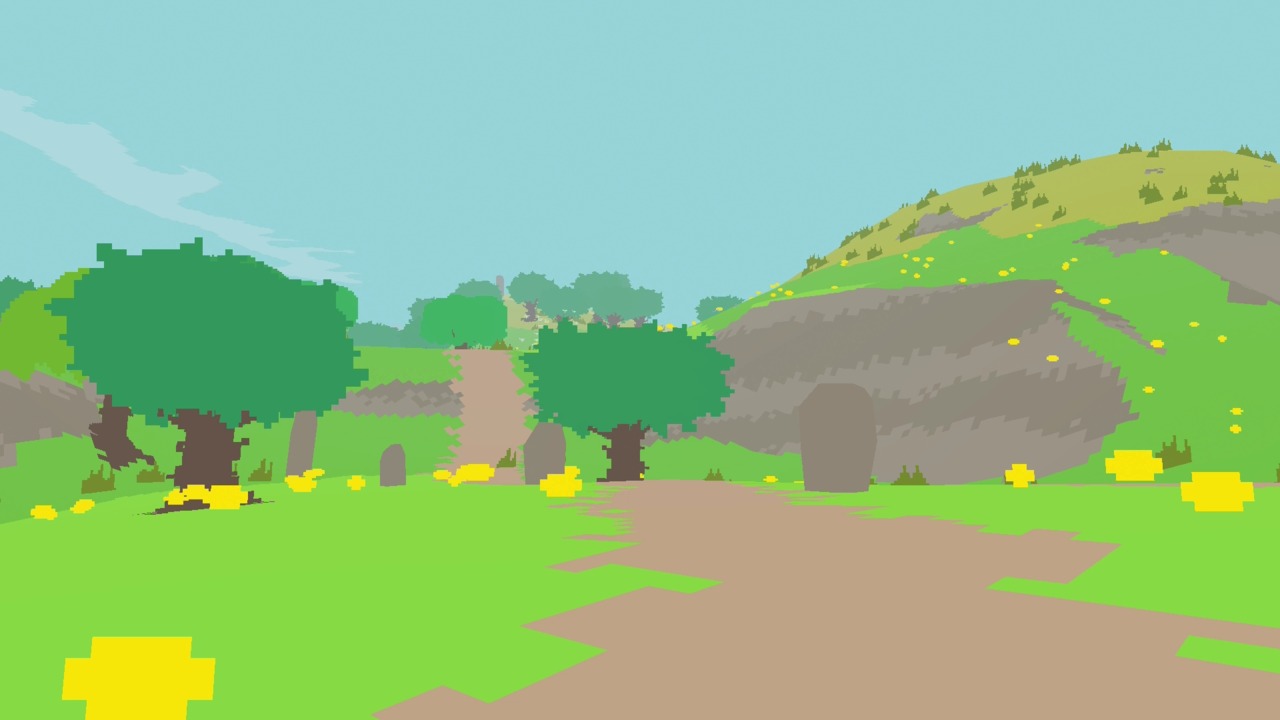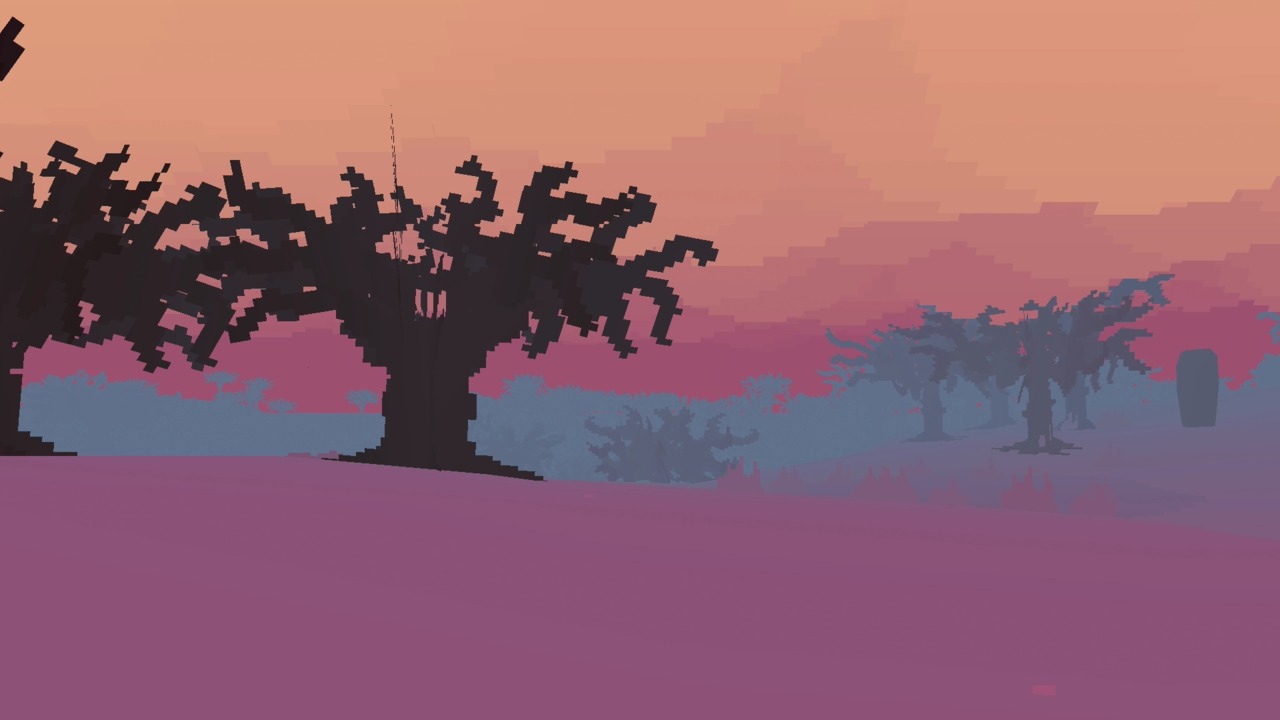Proteus is one of these games that you get lost in. It could well be described with that most patronising of monikers--an art game. There's no levelling up, no quests, no beating the AI, and no competing online. In Proteus, you simply exist. But to exist in Proteus is to exist in a world full of such surreal landscapes and beautiful melodies that it's an absolute joy to wander through.
The entirety of Proteus is the exploration of an island--a standard island in which trees, hills, and a small scattering of animals make up the sights and the sounds. As you make your way across this small piece of isolated land, the sun sets, the moon rises, and the weather changes. It doesn't sound like much, but the dependable forces of nature act upon your surroundings, creating rainstorms, snow showers, and exposing wildlife. It's a dramatic and touching effect that compels you to revisit the island multiple times. You're largely a passive spectator to Mother Nature as she weaves her magic, with the ability to move and look around your only means of interaction. There's no button to jump, pick up, pause, or punch. On occasion, animals react to your presence (usually by running away), but that's about as far as you can influence proceedings.
Despite the removal of such interactions, Proteus manages to conjure up some wonderfully memorable and engrossing moments. From the colorful sunsets to the more dramatic meteor showers, it's incredible how so much feeling can be wrung out of this heavily pixelated environment. These events are completely unpredictable thanks to a system of procedural generation that creates a totally different island, each time you play. Discussions with others who have played Proteus yield stories of events and images that you have never seen or thought could happen, adding an extra dimension of intrigue that encourages further playthroughs.

The soundtrack is also procedurally generated, but plays by slightly different rules than the visuals do. Rather than playing at random, sound effects are influenced by where you are in the world and which objects you're near. Stand on an empty beach or mountaintop, for instance, and you hear nothing but the sound of the wind (which may or may not be blowing). Walk towards a tree, and the falling of leaves acts as the trigger to one sound, while nearing a chicken or spiked rock produce other audio cues.
Each sound is abstract by design and bears little resemblance to what such things would sound like in the real world. Furthermore, each noise sounds as though an outdated electronic synthesiser has created it, which is a neat design choice that mimics the retro feel of the visuals. There's no doubting that the resulting audio outbursts are on the weird side of normal, but in the reality that Proteus tries so hard to create, they work admirably and possess bags of charm.
If you're looking for comparisons, then Dear Esther (and to a lesser extent, Journey) is probably the most obvious port of call. Proteus encourages you to simply enjoy the environment and take in what it offers at your own pace, rather than give you a challenge to best or task to perform. However, Proteus is even more open in its design than Dear Esther because there's no straightforward narrative. There are plenty of events to witness and things to see, but it's only the strength of your own curiosity that pulls you through. After you've experienced an entire cycle of weather and seasons (roughly thirty minutes of gameplay), you're left with the feeling that you've walked through an art installation rather than played a game, garnering something new and interesting each time you explore it.

Things do get a little old after you've gone through a number of cycles, but whatever the case, it's difficult to argue against the merits of experiencing Proteus at least once. You might just find something you like, something completely different, or something that emotionally affects you in ways you never thought possible from a video game. And that alone makes Proteus a winner.